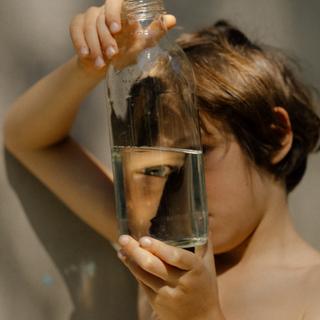


Why do we forget our earliest memories?
FeatureThe first years of life are generally inaccessible to our adult memory. Neuroscience explores this intriguing 'infantile amnesia,' revisiting a concept coined by Sigmund Freud.
Our early childhood is a strange paradox. As pivotal as it is for our future, the dawn of our lives seems to be shrouded in a thick fog in our adult brains. Hardly anyone remembers their experiences before the age of 2 or 3, and even memories before the age of 5 or 6 are hard to access. If a survivor does inadvertently emerge from this vast forgetfulness, lingering doubts remain. Is it not merely an echo of a frequently told family story, a reflection of a photo album often viewed – a reconstruction after the event?
The term "infantile amnesia" itself is ambiguous: "A 4-year-old child, for example, does not have amnesia," said neuropsychologist Francis Eustache, a memory specialist at the French National Institute for Health and Medical Research (INSERM) at the Université de Caen Normandie. "They can remember a circus show they saw the month before – but probably won't do as an adult. And by the time they're 10 or 15, they may have forgotten it." Therefore, it refers to a sort of amnesia affecting early childhood episodes, but which only appears later in life.
Novelists, of course, have continually explored this oblivion. Frenc writer Patrick Modiano, for example, is a master at painting the chiaroscuro of lost childhood – and the confusion that grips adults, confronted with rare vestiges of their past. "He could not keep his eyes off this photograph and he wondered why he had forgotten it (...). He experienced a sort of giddiness, a tingling sensation at the roots of his hair. This child, so detached from him over such a very long time to the extent that he had become a stranger, was, he was forced to acknowledge, himself," recounted the 2014 Nobel Prize in Literature winner (So You Don't Get Lost in the Neighborhood).
This oblivion is intriguing, fascinating – and does indeed evoke a sense of giddiness. How can these early years, so fundamental in constructing our identity, be erased from our conscious memory? What cerebral mechanisms are at play? Have our early years truly left no trace, however faint, in our brains' soft, gray matter? If there are traces, could we retrieve them and resurrect these fragments of early memories? Do other mammals experience such amnesia? Moreover, what might be the advantage of such forgetfulness for these species?
Treasure hunt
We headed for Berlin, to the Max Planck Institute for Human Development, where some of these questions are being explored. On a mid-June morning, we were suddenly plunged into a fairytale world: Sometimes it was a welcoming jungle, other times an underwater landscape teeming with sand creatures. In reality, these were two settings alternately projected onto the walls of this unusual laboratory, custom-made for toddlers by Sarah Power, the postdoctoral researcher leading this project as part of the team of Markus Werkle-Bergner, a psychologist and neuroscientist specializing in memory.
You have 84.38% of this article left to read. The rest is for subscribers only.
